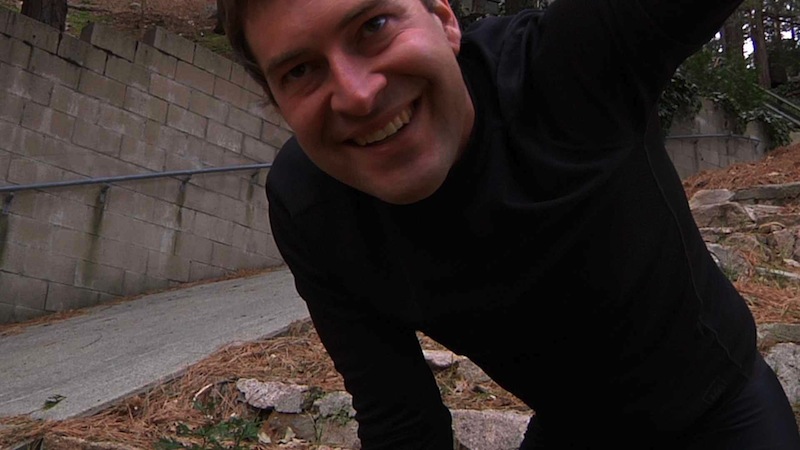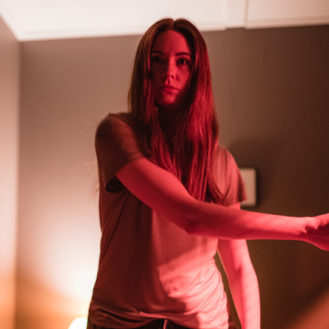By: Addison Wylie
Around the time Patrick Brice’s sex comedy The Overnight hit theatres, movie goers were also presented with the filmmaker’s take on the horror behind obsession and abandonment in his seedy DIY flick called Creep.
Creep is told from the perspective of Aaron, a videographer who is rolling lots of tape because he’s been told to. Aaron has answered a Craigslist ad posted by someone who was in need of a cameraman to document a personal video for unexplained reasons. Despite the premise for this job sounding shady, the money was good enough for this one-off gig for Aaron to enquire. He does, however, start to question his judgement as he meets his subject Josef, an anxious yet positive thinker wrestling with a hopeless health diagnosis. In the case he passes away before the birth of his child, Josef wants this video to show an honest portrayal of who he really is.
We never find out who Josef really is, which makes for continuously unsettling results and an ending that leaves us chilled. We do know he is a compulsive liar, uncomfortably skittish, and extremely manipulative. There have been characters in other comedies that fit this description and commit terrible crimes against the movie – Melissa McCarthy in Seth Gordon’s nauseating Identity Thief is the most recent example. Mark Duplass, on the other hand, does a tremendous job crafting and detailing Josef.
Being a filmmaker himself, Duplass is able to withhold a lot from his audience, yet drops breadcrumbs for us to follow. Much like Creep’s unfortunate videographer, we’re lured in by Josef’s obvious signs of abuse, realize we’ve offered too much interest, and then fall deeper into an enigmatic hole no matter how hard we try and dig ourselves out. Creep doesn’t shame us for wanting to help others, but Brice shows us how our good deeds can, in fact, be punished if the helper becomes more vulnerable than the victim.
Brice (who also plays the part of Aaron) does a commendable job juggling multiple roles on Creep’s production. Considering that no one is credited for writing Creep (Brice and Duplass receive story credits), it’s also a great feat for the film to be completely comprehensible from start to finish. And, for those already feeling queasy just thinking about shaky camerawork, the first-hand cinematography isn’t too distracting or jittery; a large compliment considering how snowy the presentation becomes under low lighting.
The audience receives the occasional jump scare from Josef’s spontaneity, but the freakiness in Creep is purely psychological. It’s a refreshing and deeper change of pace for Blumhouse Productions, a studio that often dabbles in today’s simpler thrillers.
**********
Do You Tweet? Follow These Tweeple:
Addison Wylie: @AddisonWylie





Leave a comment